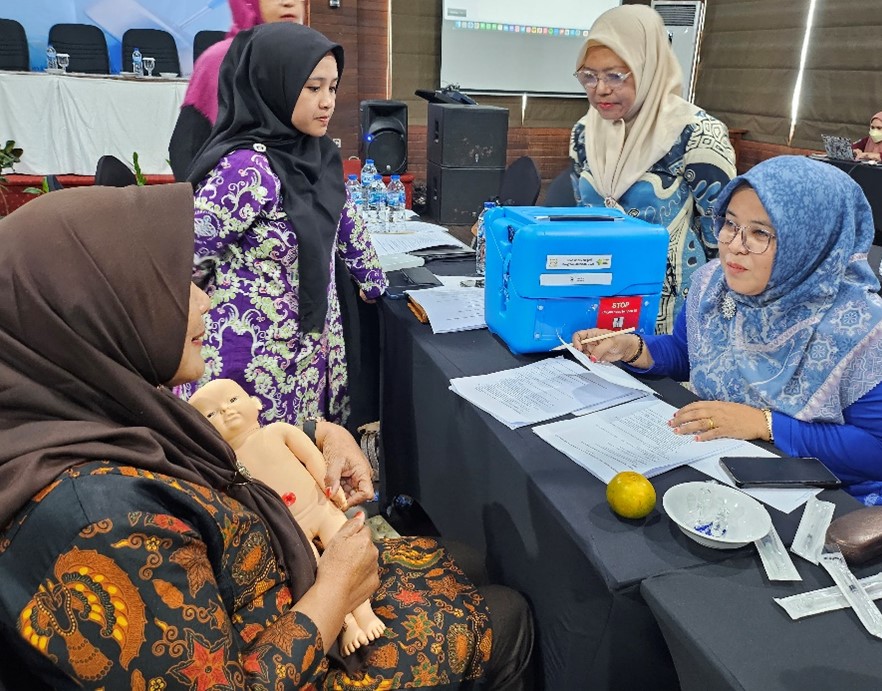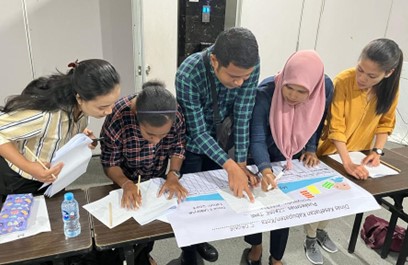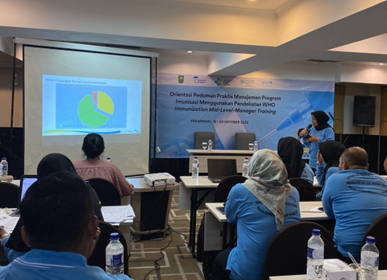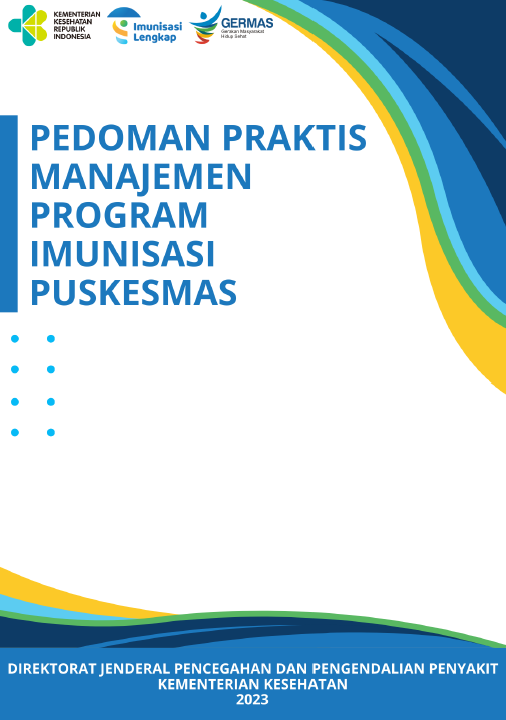Immunization is a key component of primary health care and an indisputable human right. Indonesia has made significant steps to increase immunization. However, challenges remain, such as uneven immunization coverage and limited capacity in the health workforce. Puskesmas vaccinators and village midwives need to be well-informed and equipped with the latest immunization guidance to provide quality health services and to build trust in the community. These frontline workers often miss out on crucial information and may experience difficulties in accessing existing guidelines. Addressing these gaps, such as information dissemination, accessibility of guidelines and capacity building within the health workforce, is essential to enhance immunization efforts in Indonesia and leave no one behind.
Launched in 2021, the Ministry of Health updated the Practical Guidance of Immunization Management at Puskesmas in 2023 to address these challenges. WHO supported the development of this updated document, which also includes a house-to-house monitoring tool with new gender, equity and human rights considerations, allowing vaccinators to collect information on fathers’ involvement, disability inclusion and children living in hard-to-reach areas. This document serves as useful material in improving immunization planning, delivery, and monitoring skills of frontline officers, helping pave the way to universal coverage in all children.

Facilitators observed participants during a role-play on immunization service delivery in Padang City, West Sumatra. Credit: WHO/Novi Anggraeni
Furthermore, WHO supported the dissemination of the updated guidance at the subnational level. Starting at the provincial and district level, WHO held orientation sessions on the updated guidance in West Sumatra, Riau and South West Papua, which involved a total of 95 participants from 37 district health offices and three provincial health offices. The training will empower these health professionals to lead further training of health workers at the community level. The sessions covered topics such as how to effectively conduct training, preparing training materials, including practical exercises, and orienting them on coordinating closely with local health authorities. These three provinces were prioritized because of a high number of children who missed immunization, lack of practical training opportunities on immunization and the availability and commitment by the provincial health offices.
During the sessions, training facilitators introduced 14 topics of immunization management, relevant tools, and job aids. Group exercises and field visits were also organised to improve participants’ skills in administering immunization. The orientation was enriched with WHO’s mid-level manager training modules to provide training that was tailored to the unique needs and responsibilities of mid-level managers, aligning with principles that enhance adult learning effectiveness.

Training participants in South West Papua Province practised in utilizing a tracking tool to identify under-immunized children in the community. Credit: MoH/Directorate of Immunization
By empowering immunization officers, the initiative strives to overcome health workforce challenges towards equitable immunization coverage across provinces, districts, subdistricts, and villages.
This orientation at the provincial and district levels is just the beginning. The trained DHOs have committed to guide puskesmas in creating immunization microplans as well as to develop district-level plans and monitoring and evaluating puskesmas activities. The Ministry of Health and the provincial health offices will oversee the implementation of those commitments, and the former will extend similar orientations in other provinces, ensuring a nationwide impact. Meanwhile, WHO remains committed to provide technical assistance for provinces and districts, fostering continuous quality improvements in the immunization programme.

Training participants in Riau presented the results of a practice rapid community assessment and recommended follow-up actions. Credit: WHO/Chavia Trufani
This activity is supported by the US Government through USAID.
Written by the following WHO Indonesia personnel:
- Olivi Silalahi, National Professional Officer for Routine Immunization
- Chavia Trufani, National Professional Officer for Immunization
- Novi Anggraeni, Vaccination Technical Officer

